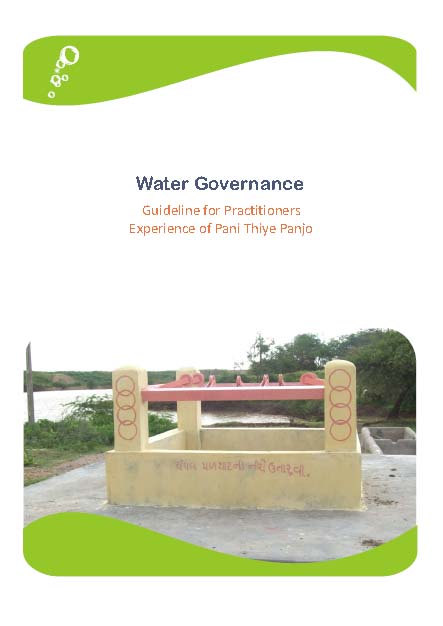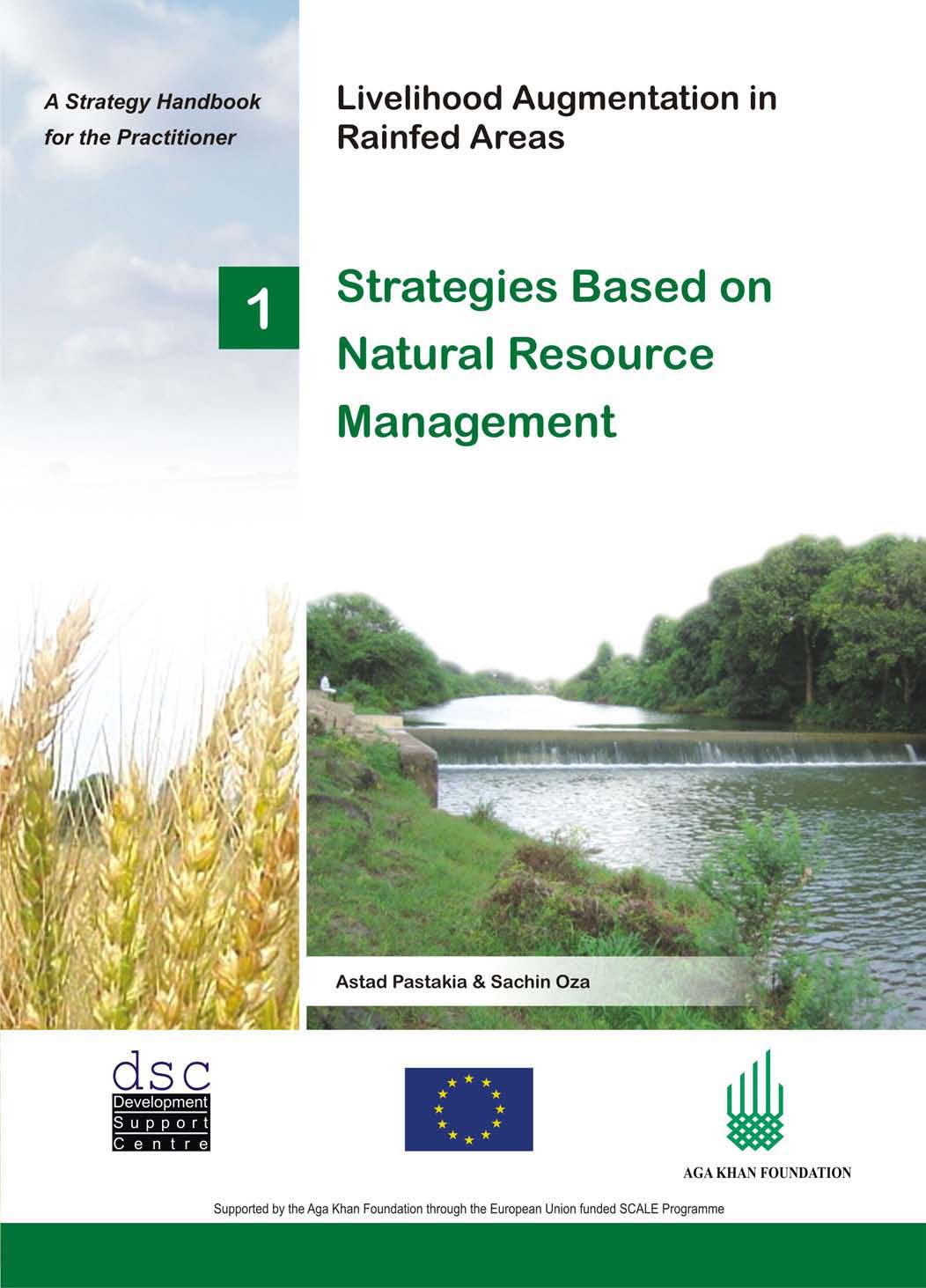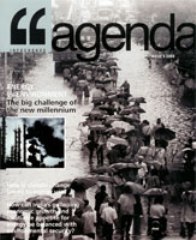/regions/india
India
Water governance guidelines for practitioners - Sahjeevan's experiences in decentralised drinking water management
Posted on 20 Jun, 2011 08:50 PM This report is based on the experience of women’s collectives promoted by Sahjeevan and of several member organizations of Abhiyan on local water governance, in particular on the demonstrated models of decentralized drinking water that they have taken up in several villages.
This report is based on the experience of women’s collectives promoted by Sahjeevan and of several member organizations of Abhiyan on local water governance, in particular on the demonstrated models of decentralized drinking water that they have taken up in several villages.
Water has been the central theme for development in Kutch. In the last two decades, a scaling up process of decentralized drinking water, popularly known as Pani Thiye Panjo, has been initiated in around hundred villages of Abdasa taluka in Kutch district of Gujarat focusing on development of local drinking water sources, their strengthening and building capacities of communities for maintenance and management of the systems to develop drinking water security at the village level.
The concept of Pani Thiye Panjo, has been well accepted as Abdasa model, which besides providing drinking water security, initiated policy dialogues at the local level on issues such as protection of groundwater, pricing mechanism of water (local vis-à-vis external sources), role of Panchayati Raj Institutions in water governance, role of local youth in developing their technical capacities and development of social capital in management of drinking water systems.
Long range forecasting of the South West Monsoon for 2011 - A report from India Meteorological Department
Posted on 19 Jun, 2011 10:04 PMIn India, SW monsoon is the principal rainy season and it receives about 80 per cent of its total annual rainfall during the summer monsoon season, from June to September.
From dreams to reality - Compendium of best practices in rural sanitation in India - A document by the Water and Sanitation Programme and the Ministry of Rural Development
Posted on 19 Jun, 2011 05:50 PMThis compendium by the Water and Sanitation Programme and the Ministry of Rural Development, Government of India presents case studies about the achievements and experiences of different situations, institutional models, community mobilisation approaches, supply chain management techniques, capacity building methods, convergence of various programmes, school sanitation, innovative approaches etc from different states and regions in the country.
After a decade of launching the Total Sanitation Campaign, India has seen significant successes in terms of the sanitation coverage, creating open defecation communities/GPs and solid and liquid waste management. Thousands of success stories have emerged across the country while still there are many challenges in making the entire rural India Nirmal and sustaining the changes achieved.
Letter of invitation for the membership of Water and Environmental Sanitation Network India
Posted on 19 Jun, 2011 03:52 PMI would like to invite you to visit www.wesnetindia.org where we have provided the latest information about water and sanitation related vacancies, events, training courses, press releases etc.
The Water and Environmental Sanitation Network of India or WES-Net India is a learning alliance of stakeholders in the Water and Environmental Sanitation sector in India, was set up in 2004 by a group of like-minded sector professionals and registered in 2009 as a society under the Indian Societies Act, with a Governing Body, a General Body and a National Coordinator.
Livelihood augmentation in rainfed areas – A strategy handbook for practitioners by Development Support Centre
Posted on 19 Jun, 2011 10:33 AM It is a compilation of ongoing, successful strategies piloted and upscaled by a range of development agencies in different parts of the country. The handbook is presented in four volumes under a common framework and focus on initiatives related to: participatory natural resource management; rural entrepreneurship development; use of information communication technology and institution development.
It is a compilation of ongoing, successful strategies piloted and upscaled by a range of development agencies in different parts of the country. The handbook is presented in four volumes under a common framework and focus on initiatives related to: participatory natural resource management; rural entrepreneurship development; use of information communication technology and institution development.
About 400 million rural poor reside in about 200 poorest districts of the country that constitute rainfed areas. Scientific research has revealed a vast untapped potential in rainfed agriculture where crop yields are lower than their potential by two to five fold. A large number of innovative projects and ideas have been tried to address this issue, although documentation has been uneven and fragmented. Drawing upon such experiences, the handbook points towards new vistas and untapped opportunities in meeting the challenge of enhancing food security with limited water resources and improving the carrying capacities of rainfed areas to match the rapidly increasing populations in these regions and elsewhere.
Model muncipal law - Ministry of Urban Development and Poverty Alleviation (2003)
Posted on 18 Jun, 2011 10:08 PMThis document includes the details of the Model Municipal Law and includes the details of :
Environmental impact assessment - Notification and amendment (2006) - Ministry of Environment and Forests
Posted on 18 Jun, 2011 10:01 PMThe document emphasises the need for taking prior environmental clearance in case of new projects or activities or expansion of already existing activities in accordance with the objectives of National Environment Policy that has approved by the Union Cabinet on 18th May, 2006 and the procedure specified in the notification, by the Central Government or the State or Union territory Level.
Presentations from the two-day workshop on success stories under watershed programmes by DoLR at New Delhi (2011)
Posted on 18 Jun, 2011 06:50 PMThe workshop was structured in two sections. Research papers were presented from research institutes such as Central Research Institute for Dryland Agriculture (CRIDA), Central Soil & Water Conservation Research and Training Institute (CSWRTI), Deutsche Gesellschaft für Internationale Zusammenarbeit (GIZ) GmbH, International Crops Research Institute for the Semi-Arid Tropics (ICRISAT), National Research Centre for Agroforestry (NRCAF), National Institute for Rural Development (NIRD) and National Bank for Agriculture and Rural Development (NABARD). This was followed by presentation of success stories by various States.
Consultation meeting with Panchayati Raj Institution representatives on review of the National Water Policy
Posted on 18 Jun, 2011 12:43 PMShri Salman Khurshid, Minister of Water Resources, inaugurated the first Consultation Meeting with the representatives of Panchayati Raj Institutions from the States of Andhra Pradesh, Kerala, Puducherry, Lakshadweep, Tamil Nadu and Karnataka on review of the National Water Policy at Water and Land Management Training and Research Institute (WALAMTARI), Hyderabad. Speaking on the occasion he said that our National Water Policy should be truly a National Policywith full participation of all throughout the country. He called upon the elected representatives of the Panchayati Raj Institutions to provide specific feedback on the centre’s role in water management from conflict resolution to co-operative development and on the ownership issue of groundwater. Shri Vincent H. Pala, Minister of State for Water Resources, briefed the elected representatives of Panchayati Raj Institutions about the consultation process undertaken by the Ministry of Water Resources for review of National Water Policy.
"Climate change" - Understanding the connections with energy use, and how India's galloping economic growth and insatiable appetite for energy can be balanced with environmental security?
Posted on 18 Jun, 2011 12:52 AM
Introduction: Energy versus emissions: The big challenge of the new millennium
By Rakesh Kalshian
To maintain its economic growth rate of 8-10%, India needs all the energy it can get. But the momentum of economic growth overrides crucial environmental concerns.
Hotting up: The science and politics of climate change
By Aditi Sen
The world is hotting up. Climate systems are changing. The 1990s were the hottest decade ever, sea levels rose by 10-20 cm during the 20th century, and atmospheric carbon dioxide levels are 31% higher than in 1750.